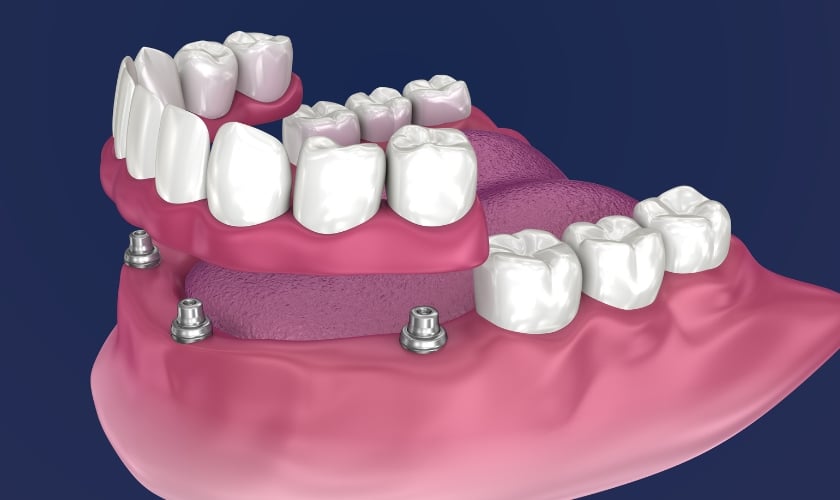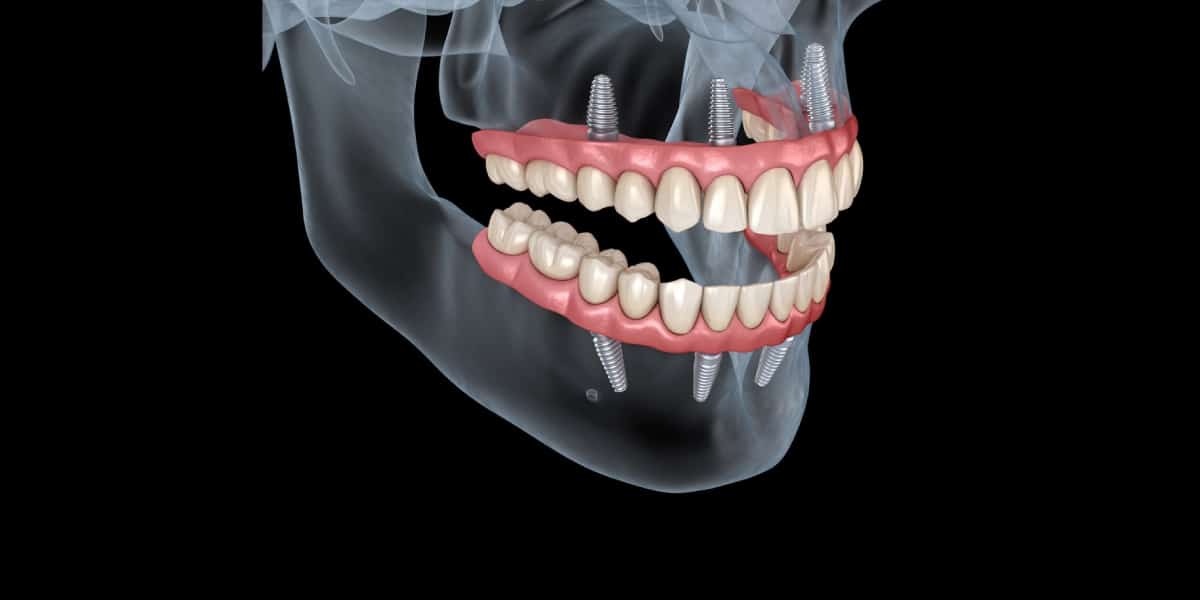Can You Get Full-Mouth Dental Implants? Eligibility Criteria Explained

Considering full-mouth dental implants as a solution involves careful consideration of eligibility criteria and understanding the comprehensive benefits they offer. Whether due to extensive tooth loss or other dental conditions, full-mouth dental implants provide a permanent and natural-looking alternative.
This blog explores the essential aspects of eligibility for full-mouth dental implants, shedding light on who can benefit most from this transformative dental procedure.
To determine if full-mouth dental implants are suitable, various factors come into play beyond simple preference. From overall health assessments to specific dental conditions, the eligibility criteria are designed to ensure optimal outcomes. Understanding these criteria not only clarifies who qualifies but also empowers individuals to make informed decisions about their oral health.
By exploring the detailed requirements and considerations involved, you can better navigate the journey towards restoring your smile and dental function effectively.
Understanding Full Mouth Dental Implants
Full-mouth dental implants provide a comprehensive solution for individuals facing extensive tooth loss or severe dental issues, offering both functional and aesthetic benefits. This section delves into the definition, purpose, and types of full-mouth dental implant procedures:
Definition and Purpose
Full-mouth dental implants refer to the replacement of all teeth in the upper or lower jaw with implant-supported prosthetics. This approach aims to restore not only the appearance of a natural smile but also the full functionality of the teeth and jaw.
Types of Procedures:
There are two primary types of full-mouth dental implant procedures:
- All-on-4 Implants: Utilizes four implants per jaw to support a full set of fixed prosthetic teeth. This approach is known for its efficiency and immediate functionality.
- All-on-6 or All-on-8 Implants: Involves six or eight implants per jaw, offering enhanced stability and support for the prosthetic teeth. This method may be preferred for individuals requiring additional implant support or in cases where bone density is higher.
Eligibility Criteria for Full Mouth Dental Implants
To qualify for full-mouth dental implants, individuals must meet specific health and dental prerequisites. These criteria ensure successful implantation and long-term oral health benefits. Key eligibility requirements include:
General Health Requirements:
- Overall good health without uncontrolled medical conditions such as diabetes or heart disease.
- Adequate bone density and quality to support the dental implants.
- Non-smoking or willingness to quit smoking to enhance healing and reduce complications.
Dental Health Prerequisites:
- Sufficient gum tissue health to support the implants.
- Absence of active gum disease (periodontitis) or willingness to undergo treatment before implant placement.
- Commitment to good oral hygiene practices to maintain implant health and longevity.
Factors Affecting Eligibility
Several factors significantly influence the eligibility for full-mouth dental implants, primarily focusing on bone density, jawbone condition, and oral health:
Bone Density and Jawbone Condition:
- Adequate bone volume and density are crucial for implant stability and longevity.
- Jawbone health ensures the implants have a strong foundation for supporting dental prosthetics.
- Bone grafting procedures may be necessary to augment bone volume if natural bone density is insufficient.
Oral Health Conditions and Gum Health:
- Healthy gums are essential to support the implants and prevent peri-implantitis.
- Absence of active periodontal disease ensures the success of implant integration.
- Treatment for gum disease may be required before implant placement to optimize oral health.
Consultation and Evaluation Process
A comprehensive dental evaluation plays a pivotal role in determining eligibility for full-mouth dental implants, involving various critical assessments:
Thorough Dental Evaluation:
- Evaluation starts with a detailed review of medical and dental histories to understand overall health and any pre-existing conditions that may affect treatment.
- Dental examinations assess the condition of existing teeth, gums, and jawbone structure to identify any issues that may impact implant placement.
- Imaging techniques such as dental X-rays, CT scans, or CBCT scans provide detailed views of the jawbone and dental anatomy, aiding in treatment planning.
Role of Dental Specialists:
- Periodontists and oral surgeons specialize in assessing oral health and bone structure suitability for implants.
- Prosthodontists evaluate bite function and aesthetics to plan the optimal restoration.
- Collaboration among specialists ensures a comprehensive evaluation, addressing all aspects crucial to successful implant treatment.
Choosing full-mouth dental implants involves a thorough evaluation of dental and overall health, ensuring suitability for this transformative procedure. From bone density assessments to specialist consultations, every step is crucial in determining candidacy and planning personalized treatments that optimize outcomes.





